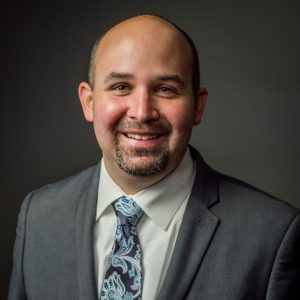We have a church here in Southern California that is growing rapidly by reaching large numbers of lost people with the gospel. It was my privilege to preach there recently. During breaks between the services, I asked several of their lay leaders for their perspective on the reasons for their growth.
The answers fell in two categories. Some seemed puzzled by the question, reflected in one person who shrugged and said, “We just do what churches are supposed to do.” There was no ‘reason’ for their evangelistic effectiveness because it is an expected – and normal – result. The second category of responses had one word in common – focus. One person said, “We reach people because we focus on it.” In my time with this church not one person asked me about or commented on the supposedly pressing issues in our denomination, community, country, or culture. Their focus on sharing the gospel in their community is all-consuming. I found their focus refreshing and encouraging.
It was interesting no one referenced outstanding pastoral leadership (which they have), nice facilities (which they recently built), or program excellence (with was clearly evident). They also did not mention any particular theological persuasion or position, nor did they cite any unique program or emphasis. These omissions stood out because they are what many people feel are essential for growing churches. They are not.
Having studied evangelistic churches for years, there is one common denominator among them. They are intentional about sharing the gospel with as many lost people in as many creative ways as possible. The diversity of these churches is significant. They have different worship styles, preaching approaches, organizational models, and varieties of ministry methods. The one characteristic they all have in common is intentionality; what the brother above called focus. They are not wasting time on lesser issues or trusting faulty sources. They are consumed with their eternal, life-changing work of introducing people to Jesus Christ. As they do this, God intervenes and they are, as another person put it to me, “watching God do his work.”
It is frustrating to see so many churches, and Christian leaders who should know better, wasting time on so many lesser issues. The greatest problem in our world is lostness. The only solution to lostness is the gospel of Jesus Christ. The best means of transmitting the gospel is an everyday believer talking about Jesus in his or her community. And the best way to collectively and intentionally combine our energy for that task is by being part of a focused church.
May God give us, particularly those of us in leadership, resolute focus on gospel-sharing, motiving others to do the same, and discipline to avoid so many distractions to our core mission.

Excerpt – John Piper, Calvinism, and Missions: A Way Forward
Read this section of Dr. Hopkins’ new book on the theology of John Piper.

Author’s Perspective: Andrew Fuller and the Search for a Faith Worthy of All Acceptation
Dr. David Rathel discusses his upcoming publication on Andrew Fuller.

John Webster and the Holiness of Preaching
For Webster, preaching and pastoral work is one of a profound vocation; a calling to emulate the God who preaches.




